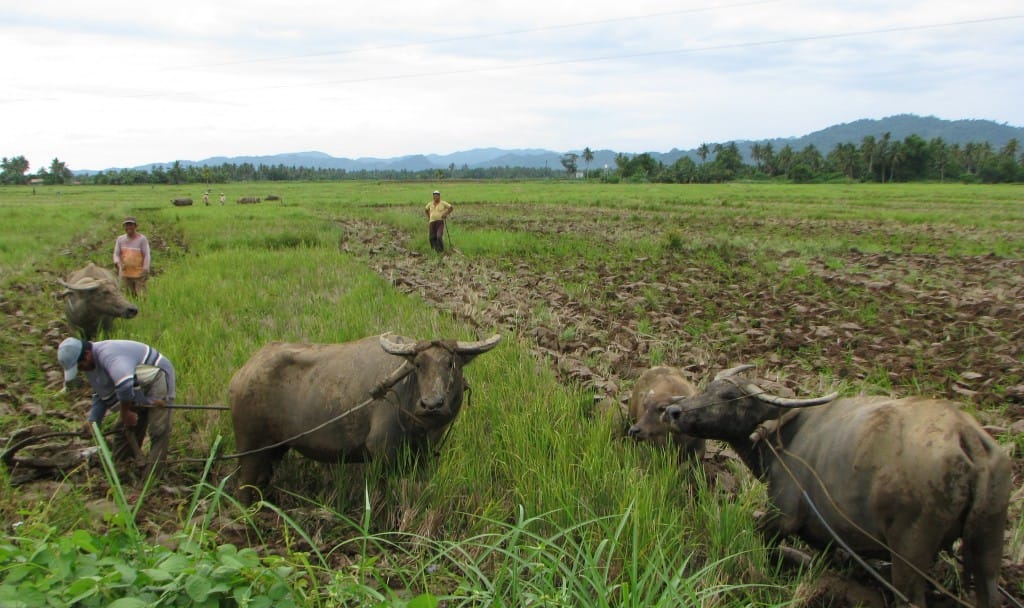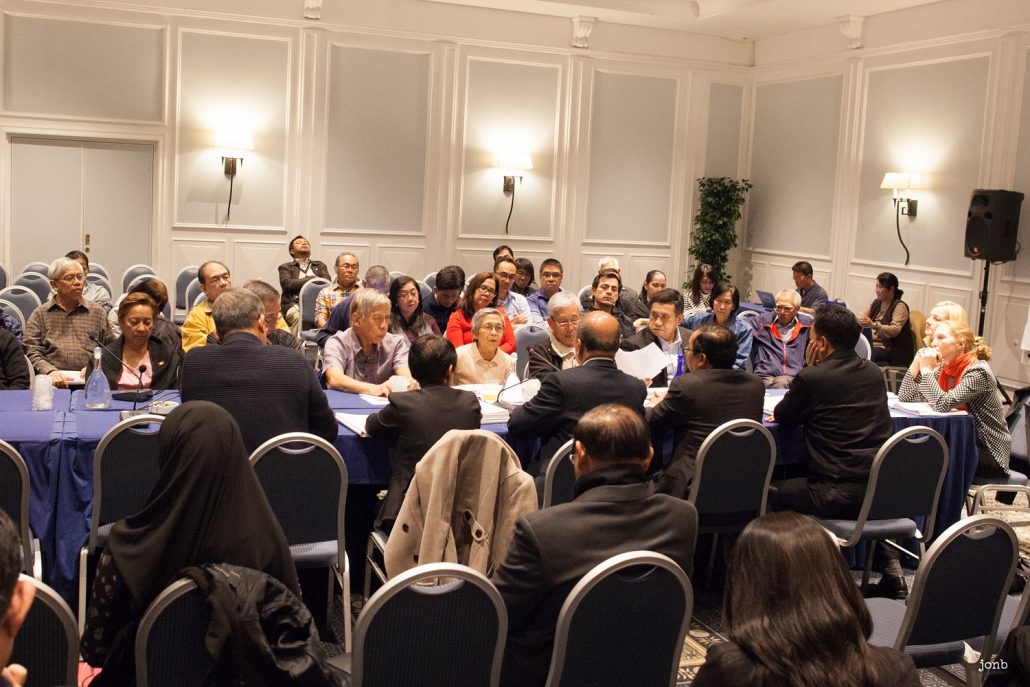Interview with Julie De Lima*, interim chairperson, NDFP Peace Panel, July 16, 2023, Utrecht, The Netherlands
Of late, the topic of the status of the suspended peace talks between the GRP and NDFP has once again resonated in the media and peace advocate circles, with GRP officials parroting and insisting on their line of disavowal of its continuation. The NDFP for its part has repeatedly stated that it has never closed its options to pursue peace negotiations for a just and lasting resolution of the roots of the armed conflict. Even the late great founding chairman of the CPP, Prof. Jose Ma. Sison, days before he expired, had relayed this desire to continue negotiating for peace, manifesting his own lifelong commitment to the peace process.
In this interview, the NDFP through its Peace Panel interim chairperson, clarifies its position on the most important substance and contentious theme of the suspended peace negotiations that have seemed lost in the narrative of pursuing or disavowing peace talks.
Liberation International (LI): Now that peace talks have remained suspended, how does the NDFP pursue the realization of its agenda, for instance, in the goals that it set in its draft for socio-economic reforms, such as distribution of land under CARP for free, free home lots, confiscation of private agricultural lands, upholding people’s rights, among others?
JDL: With or without peace talks, the NDFP continues to pursue the realization of the main content of the national democratic revolution, which is pursuing agrarian reform to liberate the peasant masses from landlord exploitation and oppression in the Philippine semifeudal and semicolonial ruling system. Depending on the strength of the peasant movement in certain areas it conducts struggles for the minimum demand of land rent reduction to the maximum of confiscation of land for free distribution to the landless tenants in the particular area.

CARP is the government’s bogus land reform program on which the peasants cannot depend. The peasants have to organize and strengthen themselves to be able to achieve agrarian reform.
LI: Former AFP general Carlito Galvez, the presidential peace adviser, has claimed in an earlier interview that appeared in a GRP website, we quote: “CASER is based on an obsolete framework and is no longer relevant since it is largely based on the pre-industrialization and pre-globalization era. It is a formula for the surrender of the national government’s integrity as well as the state’s sovereignty”.
JDL: Galvez does not know what he is talking about and is irrelevant to the issue of what is the character of the Philippine economy. We know for a fact that the Philippines is nonindustrial. It has not achieved the status of being an industrial economy. It has no industrial foundation of its own. It does not produce the industrial equipment but imports these with income mainly from the export of agricultural products and mineral ores. It does not have an independent steel industry. It has no machine-building industry nor the capacity to produce machine tools, vehicles, computers, basic chemicals, medicines and other capital goods and major manufactures.
Local manufacturing is dependent on imported machines and raw material inputs. So-called export processing zones of multinational firms are detached from the domestic economy and are engaged in semiprocessing and assembly. They are mere appendages or segments of the international assembly line of multinational firms.
The so-called service industries serve as adjuncts, not of an independent industrial capacity for the country, but of comprador-type operations in export and wholesale domestic trade, finance, tourism and travel, and the whole gamut of media, communications and infotech-based businesses that merely skim their share of profit from these basically commercial operations with some globalized character. Such industries may impart a glossy, capitalist-like sheen on the Philippine economy at first glance, but are simply unsustainable outgrowths of the semifeudal economy.
Agriculture remains a major base of the economy but it is in the main afflicted by traditional feudal relations of production, by backward, non-mechanized, non-irrigated, and with low output. There is scattered use of harvester and thresher combines in small to medium landholdings displace farmworkers. Large-scale agricultural production with some amount of mechanization and hiring of seasonal farm workers is carried out in foreign-owned and big comprador-owned plantations producing export crops.
The extent of unemployment is an indicator of development. According to 2019 official statistics, 12 million people or more than 26 per cent of the 45 million labor force cannot find work in the Philippines and have to seek jobs abroad. Another 10.6 million or 23 per cent of the labor force remain in the Philippines and are admitted by the reactionary government as unemployed. A total of 22.6 million people or more than 49 per cent of the labor force are unemployed.
Aside from exporting raw materials for foreign monopoly capitalism, the Philippines has exported huge amounts of cheap labor since 1980.
The Philippines economy consists of pockets of large-scale industrial capitalist production dependent on imported equipment and components, including electronic parts, electrical wiring production and other export commodities inside the export processing zones. These zones of cheap Filipino labor and tax evasion form part of the international assembly line (now more fashionably called “global value chains”) of multinational corporations.
The Philippines has large-scale extractive industries such as mining operations which make use of giant earth moving machines, high explosives, open pits and heavy doses of cyanide and other lethal chemicals, and international shipping vessels which often avoid customs with the complicity of corrupt officials. Large numbers of the Filipino proletariat are concentrated in these areas of economic activity. The question, however, is whether these form part of, or contribute to domestic capitalist development. The processing of the mineral ores is done abroad beyond the primary stage.
Except for the low wages they pay to workers, the mining enterprises, in fact, do not contribute anything fundamental to domestic capitalist development. In fact, they prevent local capitalist factors from developing industrially by sucking in domestic resources, and influencing economic policy to the detriment of the national bourgeoisie. The independent local capitalist sector is limited mainly to small and medium-scale manufacturing, with significant numbers in the local food manufacturing.

LI: Galvez mentioned CASER’s questionable provision, and among these questionable provisions, Galvez said, is the one on Financing National Industrialization, wherein funds for such purpose will be sourced from “confiscated and expropriated assets of foreign monopoly capitalists, big compradors and bureaucrat capitalists.”
JDL: This so-called questionable provision is one mutually worked out and agreed upon with the GRP Working Committee on Social and Economic Reforms. During the negotiations, expropriation with compensation was agreed upon whereby the government would compensate the landlords for their land for free distribution to the tenant cultivators of the land. And the landlords would be encouraged to invest these proceeds in industrial development.
LI: Galvez further claimed: “First of all, we cannot agree with the language in which this particular provision has been framed. It has been crafted in such a way that we expect it to cast a dark cloud over the nation’s economy. And second, such a measure will surely put the country at loggerheads with the international financial community, and consequently, could lead to the weakening and eventual decline of the country’s economic standing in global markets.”
JDL: Galvez’s claims are unfounded.
The measure would indeed put the country in contradiction with the monopoly capitalists and the comprador big bourgeoisie in control of the Philippine economy. But this is the very measure needed to assert Philippine sovereignty, including economic sovereignty. This is a measure that would have the support of a broad united front of the people, including the national bourgeoisie and would encourage them to evolve into an industrial bourgeoisie, together with the compensated landlords who would be encouraged to invest the compensation for their land.
LI: Finally Galvez alleged:“In fact, if we don’t have an insurgency problem, our country’s gross domestic product could even hit double-digit figures.”
JDL: The country’s unsatisfactory GDP is not the result of the so-called insurgency problem. It is caused by the lack of industrialization that would provide employment to the workers and keep them in the country instead of seeking jobs abroad.
LI: Moving the narrative forward on the need to address the root causes of the armed conflict, and/or why the GRP appears so terrified at CASER, what would be your advice to the GRP?
JDL: The government should embrace negotiations on CASER. It can grow stronger by accomplishing social and economic reforms and put the Philippines on an industrial footing step-by step.#
*Julie De Lima is also the head of the NDFP Reciprocal Working Committee which put together the NDFP’s draft of the Agreement on Socio-Economic Reforms

